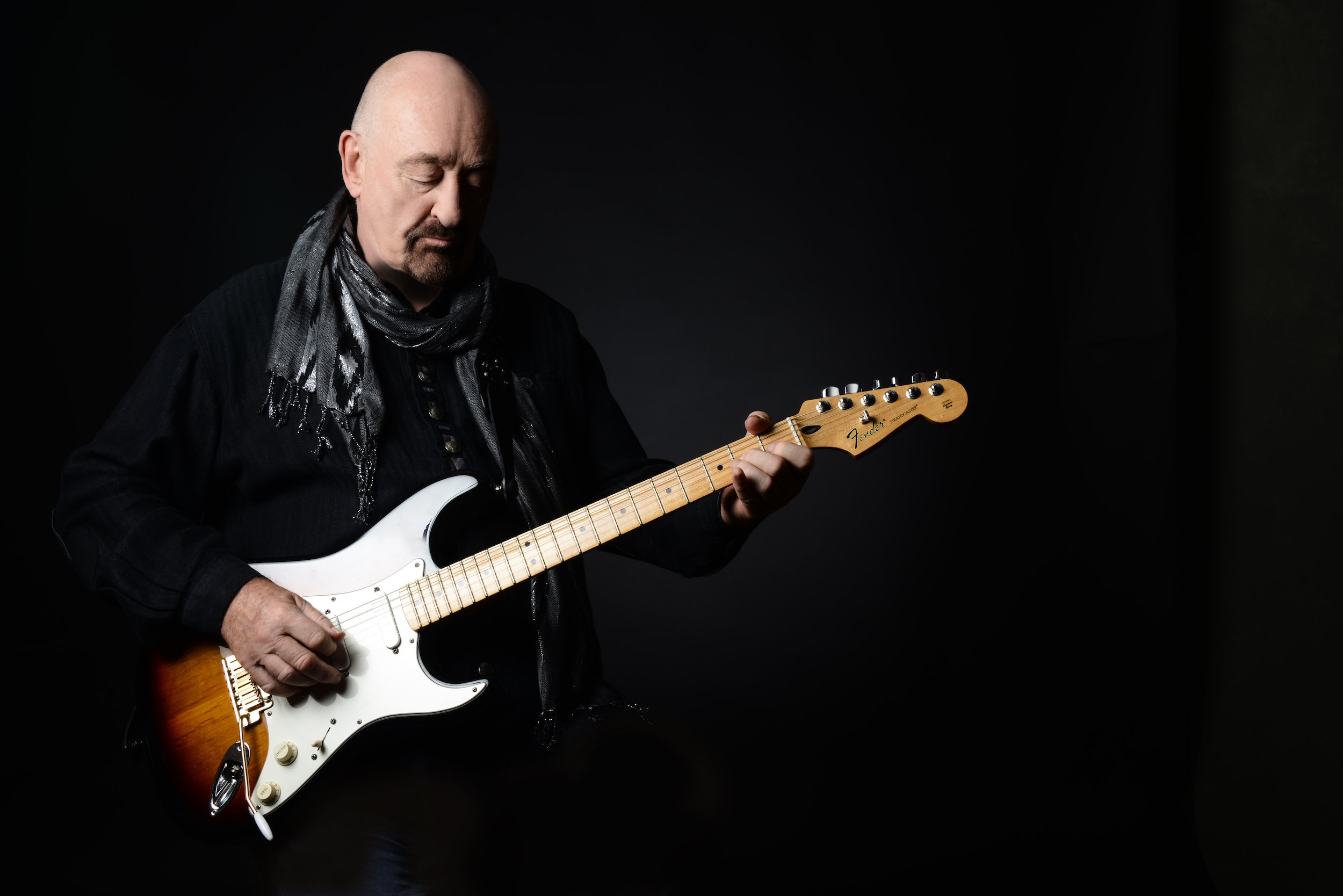
Some see Dave Mason as a quintessential ’60s/’70s British classic rocker. Yet he has lived in Southern California since 1969. He speaks with barely a trace of the British accent he was born with in Worcester in 1946. Asked whether he considers himself an American musician or an English one, he is sage, quoting a bumper sticker his late father, a WWI veteran, had on the rear of his car: “I am a citizen of the world.”
Over his years on the planet, Mason was a founding member of Traffic and (briefly) the original second guitarist in Derek and the Dominos. Despite having no musical training, Mason has, throughout his lifetime, been a presence onstage and in the studio with the biggest names in classic rock. The distinctive switchback 12-string that kicks off Jimi Hendrix’s defining 1968 take of “All Along the Watchtower”? Mason. The droning shenhai at the end of the Rolling Stones’ “Street Fighting Man”? Mason. The gent singing against Stevie Wonder’s sweet harmonica, in 1973, on “The Lonely One”? Mason.
Born May 10, 1946, he began playing guitar at 16, and within a year, like many hopefuls in his immediate postwar generation, was gigging in outfits with brash young names like the Jaguars and the Hellions; learning chord shapes on a cheap guitar while sussing out how to pace a gig or chat up a bird – the rock ‘n’ roll life. He’s still living it, as he continues to tour regularly. (See here for tickets.)
The Hellions tracked a single with producer Kim Fowley (then living in London), and featured a drummer named Jim Capaldi, who, after the group morphed into Deep Feeling, introduced Mason to his pals Chris Wood and Steve Winwood – the latter fresh off of scoring hits like “Keep On Running,” “Gimme Some Lovin'” and “I’m a Man” with the Spencer Davis Group.
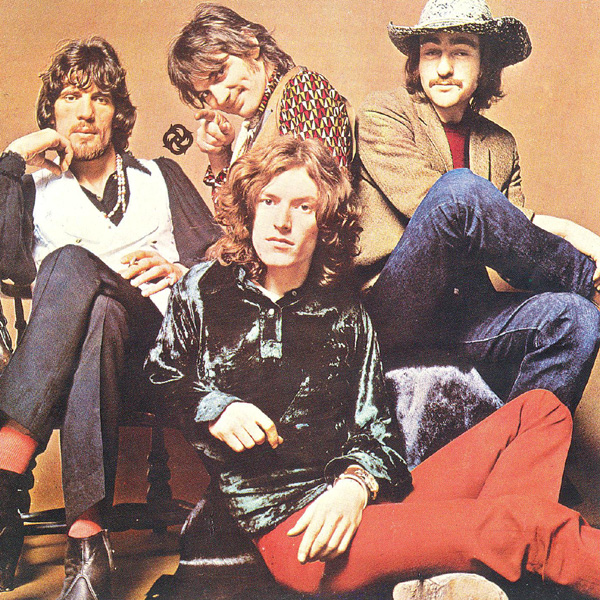
One thing led to another, and they became a new band that christened itself Traffic.
What separated Traffic from its contemporaries, at least in part, was its rural Berkshire Cottage sound, a sort of folk psychedelia at odds with the mod pop of Carnaby Street and the bristling R&B of the Marquee. Mason’s songwriting sensibility, equal parts whimsy and melody, was, to Winwood’s dismay, a huge part of the group’s early sound, with the trippy, flute and sitar-laden “Hole In My Shoe” hitting #2 on the British charts as the band’s second single.
Fame came early, and with it the struggles.
“I was 19 years old,” Dave Mason says in our interview. “’Hole in My Shoe’ was the first song I ever wrote. How did I cope with all of that happening so fast, so quick? I quit. It was too much for me. That’s why I left Traffic after the first album.”
If you’re a new reader of ours, we’d be grateful if you would Like our Facebook page and/or bookmark our Home page.
He returned briefly, but by the time the band’s second long player, simply titled Traffic, was in the shops, Mason was already on the bricks again. Bloodied but unbowed, he headed for America.
“The personalities came in after the second album,” he says. “That wasn’t me. That was the others. I have a very pop sensibility, and in the beginning the songs that I was writing became the singles for the band, and that was a rub for the other three. They didn’t want it. That’s why I upped and moved to California.”
Perhaps surprisingly, given the rancor that sometimes surrounds talk of Traffic days, Mason is, once again, sage about how things shook out. He even returned to the band a second time for a handful of gigs in 1971, which led to the release of the loose, raw live disc, Welcome to the Canteen. But any fraternal association ends there. (One of his most recent projects has been the live presentation Dave Mason’s Traffic Jam.)
Watch Mason perform with several of his ex-Traffic mates at their 2004 induction into the Rock and Roll Hall of Fame
“Feelin’ Alright,” first recorded by Traffic and allegedly inspired by the band’s issues, remains a jam band staple to this day, and has been covered by everyone from Grand Funk Railroad and Mongo Santamaria to, most famously of course, Joe Cocker, whose sandpaper voice found every shred of emotion in the song.
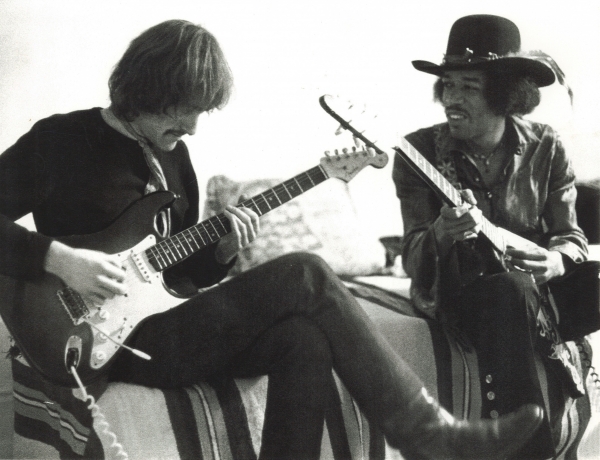
“I’ve been wanting to do Traffic Jam for years, and I finally put it together in 2013,” Mason says. “I just wanted to revisit some of that stuff. Looking back, I would classify Traffic as one of the original alternative bands. These so called jam bands are very popular these days, but we were doing that back then. The way things turned out is that pretty much all the Traffic songs I picked out to do in the show are not my songs. But they’re fun to play and they’re part of that era.”
“Obviously, I do ‘Feelin’ Alright,’ and sometimes I’ll throw in ‘You Can All Join In,’ but I wouldn’t even attempt to do my early Traffic stuff,” Dave Mason continues in our interview, echoing Winwood’s opinion from those days. “Frankly, they were my first attempts at writing, and to me, at this time, they’re trite and banal and I don’t want to play them again.”
Mason still has all six strings under his fingers and under his command. That agility is part of what’s kept him sane and solvent through the ups and downs of his epic 50-year career.
As noted, immediately following Traffic’s tossing, Mason moved to Los Angeles, where he took on the lead guitar slot with Delaney & Bonnie, the soulful southern-tinged duo that would hold sway over fellow gunslinger Eric Clapton, as well. Mason got there first, and the married Bramletts, whose first tour with Mason was as opening act for Winwood and Clapton’s Blind Faith, would soon take his “Only You Know and I Know” to the charts in the States.
When Clapton, during sessions for George Harrison’s All Things Must Pass, stole the group’s rhythm section for Derek and the Dominos, he initially pulled Mason – back in England for the second brief Traffic reunion – in, too.
Being the first second guitarist of the Dominos – breaking in, with a studio date and one live gig, the shoes that Duane Allman would fill – would alone guarantee Mason his place in the ephemera of rock ‘n’ roll, but that’s just a start.
Post-D&B, in 1970, Mason teamed with Mamas and the Papas vocalist Cass Elliott as a duo, releasing an obscure eponymous album the following year. It’s a hidden gem.
What of his dalliance with Wooden Frog, essentially an ill-fated Winwood-less Traffic; or his work with proggish British rockers Family; or his membership, in the ’90s, in Fleetwood Mac (with his old friends’ daughter, Bekka Bramlett), holding down a guitar/vocal chair vacated by the likes of Peter Green, Bob Welch, Lindsey Buckingham and Billy Burnette? Harrison, the Stones, Paul McCartney, Stephen Stills, Phoebe Snow… Mason’s Zelig-like list of associations rolls on and on.
“They’re all highlights. I was young. I was 22 years old [when I started doing sessions and solo work], and what the hell do you know when you’re 22? There was no manual. I was just out there following my dream. It just happened that I was in a lot of places where things worked out for me. The enormous amount of talent that I’ve had the opportunity to sing with and play with is awesome. I’m very fortunate to have landed in those situations.”
His memory of working with Michael Jackson, on “Save Me” from 1980’s Old Crest on a New Wave, is particularly charming.
“I was cutting Old Crest, the last album I made for Columbia, at Westlake in L.A. Michael was in the other room (Studio A) doing Thriller. I needed somebody to sing a high part on a song I was recording called ‘Save Me.’ Somebody told me they were on a break, so I just walked over there to the doorway of the control room and I explained what I was doing. He looked at me for a minute and he said, ‘I was 12 years old and I did this Diana Ross session, and the last thing she and I did together was a song called “Feelin’ Alright,” so yeah, absolutely, I’ll come over and sing with you.’”
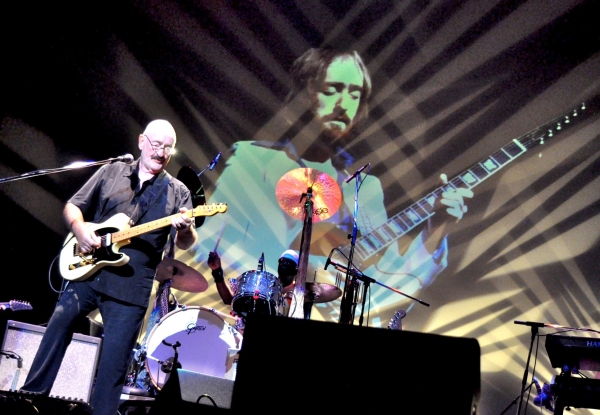
What’s easy to overlook while parsing Mason’s star-studded resume is just how solid his solo work has been since the release of the Tommy LiPuma-produced Alone Together in 1970 (and, yes, he confirms he’s still signing the original multi-colored marbled vinyl copies).
That album contained FM radio hits “World in Changes” and “Shouldn’t Have Took More Than You Gave,” as well as Mason’s own take on “Only You Know and I Know,” and truly established his mellow yet still edgy sound.
Related: Our Album Rewind of Alone Together
Columbia Records was a good place to be, and Mason released a string of strong titles, even if they didn’t quite ring with the fervor of Alone Together.
Then, in 1977, came “We Just Disagree,” culled from Let It Flow, produced by hard rock maven Ron Nevison.
Watch him perform it on The Midnight Special that year
The song, written by Mason’s longtime friend and guitar foil Jim Krueger, is indelible and still sounds fresh today. Like “Watchtower,” it kicks off with a distinctively strummed 12-string (played in the studio version by Krueger), but it’s Mason’s voice, all salt and honey, that sticks in the memory.
“Frankly,” he laughs, spinning a well-burnished line, “I thought it was too good a song to be a hit.”
Krueger’s death, at 43, from pancreatitis, in 1993, was a blow musically more than personally.
“Jim and I played together for 18 years, but we never hung out together. We never really had any social interaction. We just worked so well musically. He was an awesome guitar player and it’s too bad that he went so early.”
Similarly, queried about the importance of the ubiquitous 12-string in his music, Mason doesn’t elaborate or wax poetic.
“It’s like having a piano in your hands. It’s just a fuller version of a six-string.”
While “Disagree” only rose to #12 on Billboard’s Hot 100 (Billy Dean took it to #9 on the country charts in ’94), it still provided the kind of exposure that has kept Mason aloft as a live act ever since. And he’s just fine with that.
“Live is where it’s at. There’s so much fake stuff going on. There’s so much bullshit out there. The only thing that lasts is anything that’s real, and the only thing that transcends genre is authenticity. The rest is all just a smokescreen.”
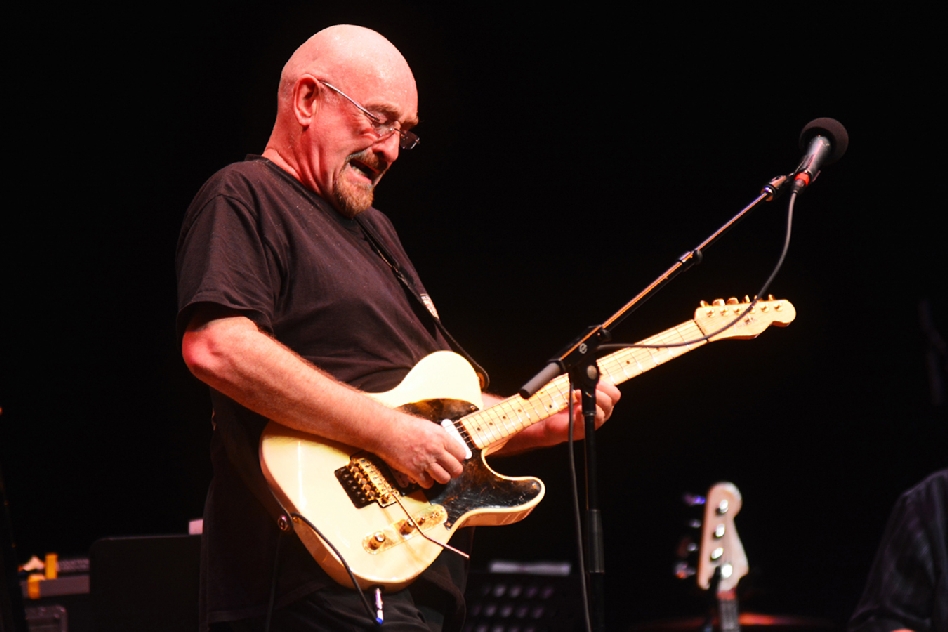
He’s not quite so fine with the way audience interaction has changed in the digital age. Instead of lighters held aloft for an encore (a trope sometimes attributed to Fowley), he often faces a sea of cellphones, capturing unauthorized images and audio.
“The Internet has destroyed intellectual property,” Mason fumes. “It’s destroyed people’s livelihoods. It’s all been turned into zeroes and ones and people are just taking it. It bothers me when people sit there with their damn phones, capturing video footage of what I’m doing in front of them. Sit there and enjoy the show; don’t just keep capturing what we’re doing.
“There’s a finite, very small percentage of musicians moving in that very rarefied stratosphere of making millions of dollars every year,” he explains. “Then there’s the 98 percent of us who are literally working musicians. I am still in that category, and certainly the people who play with me are. This is our livelihood. It’s the way we make our living. You’re not paying me to stand up here and make music, because I would do that anyway. What you’re paying me for is to leave the house, especially at my age.”
Mason – whose recorded output has leaned on live albums and compilations since 1987’s Some Assembly Required – shows no sign of slowing down when it comes to leaving the house, or to being a road dog. In 2017, he released an EP, Pink Lipstick, of recent music and previously unreleased recordings.
“Playing live is always great,” he says. “I’ll be doing it ‘til I drop. Don’t miss the last show!”
- John Sebastian on the ‘Magic’ of the Lovin’ Spoonful - 03/17/2022
- Dave Mason on Traffic and His Deep Musical History - 05/10/2021

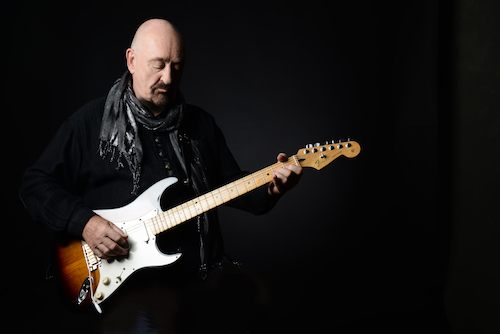
8 Comments
Thanks Dave Mason for your wonderful music. I grew up listening to my older brother play the Headkeeper album. I haven’t stopped listening!
Thanks again!
I was googling Dave Mason, The barf album, and I ended up here. I was telling my wife and daughter that I used to have an album that looked like somebody had barfed on it. Then I started singing “world in changes”. I love that album. I used to go see Dave when I would see that he was in concert. His show was always the best. Probably still is.
I saw Dave in Atlanta. He still rocks it very well. I love how genuine he is. My admiration and respect for his talent is great. I can only imagine the experiences he has had with such amazing artists. He is a treasure! I would love to sit down with him for a couple of hours and just listen to his stories. What an amazing man!
Wonderful, informative article about one of my all time favorite musicians. I’ve followed his career since that 1st Traffic album and seen him in concert multiple times. Always a wonderful show with a deep list of songs to draw from.He’s one of those rare people that benefit from getting the opportunity to work with really talented folks and see it for what it is:a chance to rise to the occasion and be heard by a wider audience.I love his comment about surviving in the music industry. A few musicians near the top become very wealthy, the rest are out there working hard to do a job that they love. That’s why it’s so important to go out and support live music. Go see Dave when he comes to your area, you won’t be disappointed.
can’t believe there is no mention of the albums “Like you Never Left,” and all time favorite, “Dave Mason
Long live Dave Mason music! Great coverage
of his past & story quotes…I don’t disagree
Dave is quite a conundrum. There’s no denying his talent and contributions over the years. I do love his music, and have seen him many, many times over the course of his career. That said, but his own admissions, he’s been extremely lucky, in terms of so many of his more famous collaborations, in being at the right place, at the right time. Especially since — and I say this as both a guitar player, and a real fan — Dave’s not really that original of a guitar player. But when you see his shows, he does indeed wind a spell over you with his playing (in addition to his singing and songs), that’s very satisfying. Much has been made of his lifelong struggle with Steve Winwood, with Winwood often being made out to being the difficult one. I think the fact that Dave has left Traffic, as well as so many other “groups” so many times probably says something about his ability to play well with others, beyond the short term, as he’s done so well on others’ recordings. Having met the man, briefly, after one of his shows, he strikes me as a bit of a curmudgeon, who finds the requirements of dealing with fans, at this point in his life and career, to be a bit of a nuisance, even though he’s always been dependent on them to continue being able to do his mid-market level shows. Unlike other veteran artists who’ve been fortunate enough to be able to continue playing throughout their lives, I didn’t sense much joy or gratitude from Dave in interacting with fans. So Rachael, as much as Dave relishes being a name-dropper of all the famous folks that he’s had the pleasure to know and collaborate with, as a testament to his own fame, I don’t see much chance of ever having that sit down with him to listen to his stories.
Lastly, I have to disagree with Dave about his early traffic songs that he finds “trite and banal.” In my view, they’re anything but that, but rather are pure pleasures that stand up against the tests of time. In my view, and to be perfectly honest, I think the reason Dave has no interest in playing them again is because the original recordings of these songs are so intricately woven and complex, that Dave would find it difficult to attempt them nowadays, especially as he puts such a flat, vanilla-like spin on so many of the Traffic songs he does do in his shows. It’s hard to imagine him actually attempting to create the psychedelia that Traffic’s first LP so gloriously created. Too bad he felt he had to insult that music, instead of acknowledging it’s greatness, as a reason for not performing it. But to the point, that’s our Dave — warts and all. I’ve always loved the guy. I just wish he didn’t feel the need to be such a bit of a prick, as a result of his own insecurities.
The name of the Winwoodless Traffic band wasn’t Wooden Frog, but Mason, Capaldi, Wood and Frog.